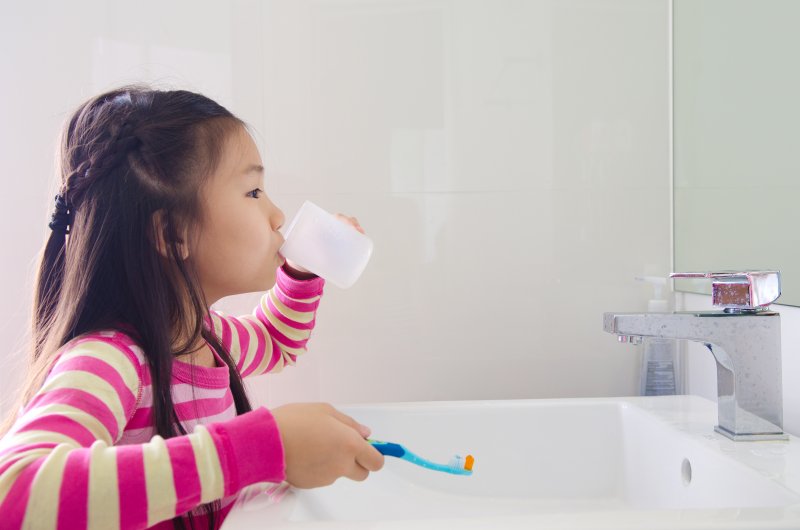
Most people grow up learning to brush and floss their teeth every morning and evening to keep a healthy smile. You might have even been told to rinse afterwards, either with water or a mouth rinse. While there are benefits to washing out your mouth, you may want to hold on for a moment before doing so. Read on to learn when rinsing is beneficial during your dental hygiene routine!
The Importance of Fluoride for Teeth
The most common active ingredient in most toothpastes is fluoride. This is the mineral that helps prevent cavities and decay by remineralizing your enamel and creating a more resistant smile. As you brush your teeth, you are essentially scrubbing and coating your pearly whites with this substance. To make the most of it, you can simply spit out the toothpaste and not rinse your mouth.
Should I Rinse My Mouth After Brushing?
Allowing fluoride to sit on your teeth for longer can significantly reduce tooth decay. If you rinse out your mouth immediately after brushing, then you’ll basically wash away the ingredient meant to protect your smile. Even if you rinse with a mouthwash containing fluoride, you can still risk removing the concentrated content from your toothpaste.
While rinsing after brushing isn’t the best idea, it’s still essential for your overall dental health. Similar to your natural saliva flow, it can help wash away bacteria and other debris that might introduce bacteria. However, you’ll want to rinse after flossing instead, as this is when the majority of plaque buildup and particles have been removed.
What Are the Risks of Not Rinsing My Teeth After Brushing?
Although you’ll generally want to reap the benefits of allowing concentrated fluoride to work on your teeth, there are also some side effects to consider. You may risk ingesting a large amount of this mineral, which can result in:
- Abdominal pain
- Diarrhea
- Nausea
These levels of fluoride toxicity are typically rare and mostly occur when children ingest too much fluoride products meant for adults. To avoid any issues altogether, you can try rinsing your mouth around 20 minutes after you brush your teeth, especially if the mouth rinse contains alcohol or lacks fluoride.
By keeping these few facts in mind, you’ll be able to maintain an even better dental hygiene routine while capitalizing on the benefits of your toothpaste. And if you have more questions about the best practices for preserving your smile, your dentist will be happy to help!
About the Practice
James K. Kramer offers high-quality, modern, and caring dental services for patients in Selbyville, DE and the surrounding communities. Our expert staff remains up-to-date on the newest techniques and uses the latest technology to deliver the comprehensive care you deserve. We also provide a wide range of treatments, including dental checkups, cleanings, and even fluoride treatment to maintain your best smile. If you want to know more about the importance of fluoride and proper dental hygiene, feel free to visit us here or call 302-436-5133.
